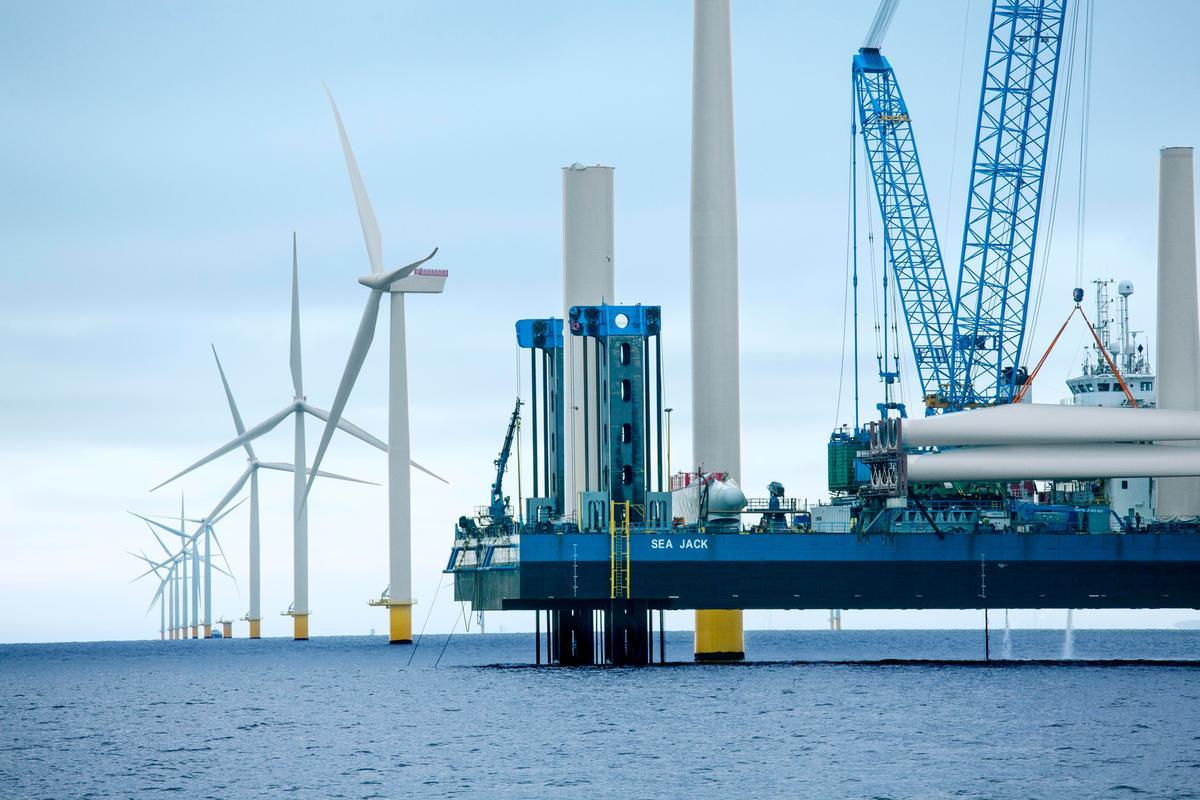Ørsted Joins the SteelZero Initiative to Support Transition to Low-Carbon Steel
The renewable energy company sees low-carbon steel as critical to achieving a carbon-neutral supply chain by 2040, and important to meeting global climate goals.

COPENHAGEN, Denmark, December 1, 2020 /3BL Media/-- SteelZero, a global initiative to drive market demand for net-zero emissions steel, was launched today with support from major steel-using organisations, including Ørsted.
The steel industry contributes about 7% of global carbon emissions, making it one of the largest contributors to climate change. Zero-emissions steel is critical to meeting global climate goals and decarbonising the steel sector and value chain.
On track to be carbon neutral in 2025, Ørsted targets a net-zero carbon footprint and carbon-neutral supply chain in 2040. Steel accounts for about half of the emissions in Ørsted’s offshore wind supply chain. The steel used in the company’s wind turbine installations is highly specialised, and no commercially viable low-carbon alternatives are available today.
“As one of the world’s largest renewable energy companies, we’ve set the ambition to decarbonise our entire supply chain by 2040,” says Jakob Askou Bøss, Senior Vice President, Corporate Strategy and Stakeholder Relations, at Ørsted. “Without low-carbon steel, that will not be possible. With SteelZero, we want to make it clear to the steel industry that we’re ready to be part of the journey of innovation and collaboration to get there.”
Engaging with suppliers to decarbonise the supply chain
In January 2020, Ørsted launched a programme to reduce emissions in the most carbon-intensive categories of the company’s supply chain: manufacture of wind turbines, foundations, substations, cables, and components. These are produced using materials that are energy intensive to extract and manufacture. Ørsted’s strategic suppliers are asked to disclose their own emissions, set science-based carbon reduction targets, and use 100% renewable electricity in manufacturing, among other key requirements.
There are substantial technical challenges to achieving a carbon-neutral supply chain, including around steel. Significant innovation is needed to find sustainable and cost-competitive ways to produce low-carbon steel, entailing close engagement with suppliers. The SteelZero initiative will support such engagement by fostering low-carbon innovation and collaboration across the steel value chain.
“The good news is that our strategic suppliers share our ambitions,” says Jakob Askou Bøss. “So far, we’ve had a lot of positive feedback, and our suppliers are fully engaged. The message we’ve heard loud and clear is that we must solve this together.”
Towards net-zero steel
SteelZero is a new initiative from the non-profit Climate Group, run in partnership with ResponsibleSteel. Organisations that join SteelZero commit to a transition to procuring, specifying, or stocking 100% net-zero steel by 2050. The commitment framework also includes an interim commitment for 2030, with various options to achieve this.
“Steel is a critical material for the renewable energy sector, but its production accounts for a significant amount of companies’ supply chain emissions,” says Jenny Chu, Head of Energy Productivity Initiatives at the Climate Group. “That’s why it’s so encouraging to have Ørsted, one of the largest renewable energy companies in the world, sign up as a founding member of SteelZero. Ørsted’s bold commitment to procuring 100% net-zero steel by 2040 not only demonstrates real leadership and ambition, but will also inspire their peers and others across the supply chain to follow suit.”
Watch the Climate Group’s launch video about SteelZero here.
About Ørsted
The Ørsted vision is a world that runs entirely on green energy. The company develops, constructs, and operates offshore and onshore wind farms, solar farms, energy storage facilities, and bioenergy plants, and provides energy products to its customers. The Group’s revenue was EUR 9.1 billion in 2019. Ørsted will be carbon-neutral by 2025 and targets net-zero emissions across the entire carbon footprint by 2040. The company generated 86 % of its energy from renewable sources, and had reduced carbon emissions by 86 %, in 2019. Ørsted ranks #1 in Corporate Knights' 2020 Global 100 index of most sustainable corporations and is recognised on CDP’s Climate change A List as a global leader in climate action.
Contact:
Devapriyo Das
Senior Commmunication Advisor, Ørsted
dedas@orsted.dk
+45 99 55 46 14

